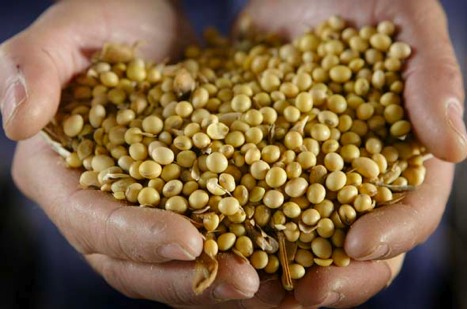The EU Commission should not authorize the use of glyphosate-tolerant GM soybeans in food and feed, said the European Parliament on Wednesday.

MEPs noted that glyphosate, a herbicide, classified as “probably carcinogenic” by the World Health Organisation (WHO), and that GMOs are being authorized in the EU without the support of member states.
The three genetically modified soybeans to be authorized by the European Commission for use in food and feed are FG72, MON 87708 x MON 89788 and MON 87705 x MON 89788. MEPs approved three separate objections, all tabled by MEPs Bart Staes (Greens/EFA, BE), Sirpa Pietikäinen (EPP, FI), Guillaume Balas (S&D, FR), Lynn Boylan (GUE/NGL, IE) and Eleonora Evi (EFDD, IT).
Concerns over glyphosate
MEPs point out that the herbicide glyphosate, which the three GM soybeans tolerate (along with other herbicides in the case of FG72 and MON 87708 x MON 89788), was classified as “probably carcinogenic” to humans on 20 March 2015 by the World Health Organization’s cancer agency.
Flawed process
MEPs also point out that the European Commission itself deplored that since the current GM authorisation process came into force, every GM authorisation decision has been taken by the Commission without the support of a qualified majority of member states. In effect, this turns what should be the exception into the norm.
Background
A separate EU law that would enable any EU member state to restrict or prohibit the sale and use of EU-approved GMO food or feed on its territory was opposed by Parliament in October. MEPs are concerned that this law might prove unworkable or that it could lead to the reintroduction of border checks between pro- and anti-GMO countries. They called on the Commission to table a new proposal.


















